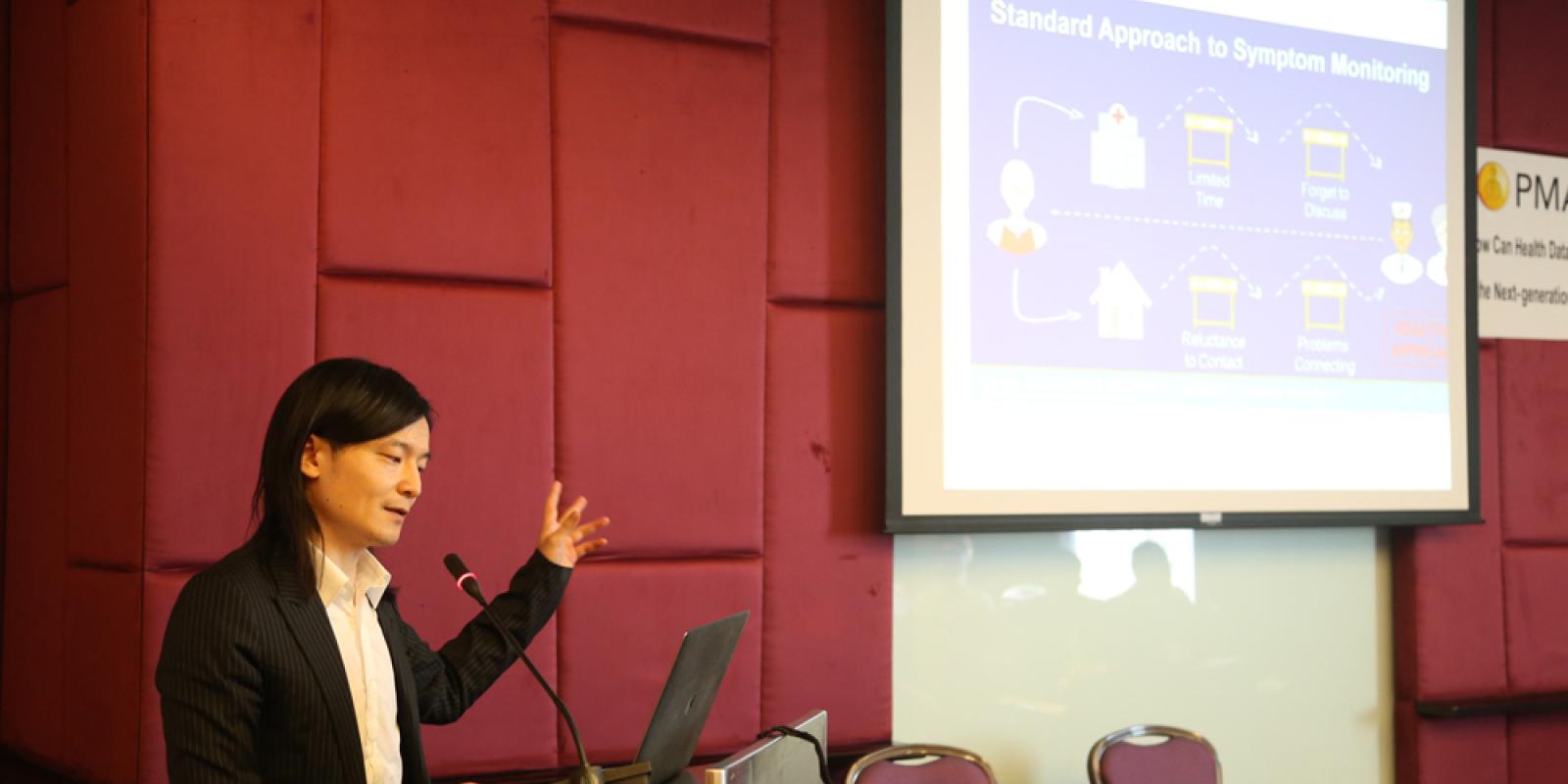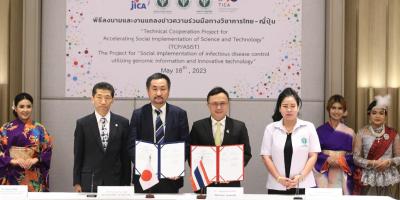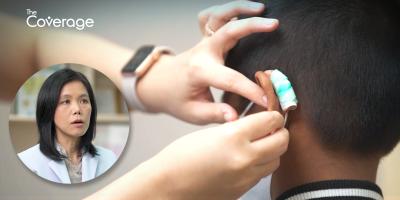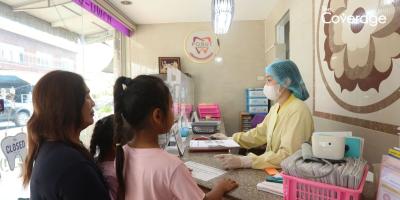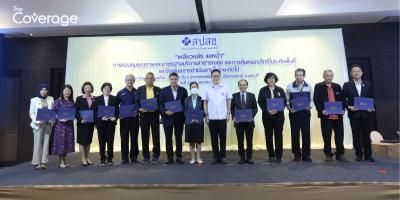The collaboration progress was reported during a meeting “How can health data and technological innovations contribute to the next-generation UHC for ensuring global human security?” on Tuesday (30 January 2018).
The event was organized by the sideline of Prince Mahidol Award Conference 2018, at Convention Center of Centara Grand Hotel, to share knowledge of using data and Information and communication technology (ICT) approach in building person-centered healthcare system---sharing decisions with patients and helping people manage their health.
Since 2016, Japan and Thailand has formed up a ‘Partnership Project for Global Health and Universal Healthcare Coverage (UHC)’ to improve capacity of UHC and data utility.
Yohsuke Takasaki, the project’s chief advisor, said Japan and Thailand were working extensively on regional and global health issues.
Participated by Thai Ministry of Health, UHC’s operator National Health Security Office and Japan International Cooperation Agency, the project’s overall goals are to expand access to health services, improve financial models and provide technical support for sharing UHC to the globe.
Through the project, Japan will share knowledge and provide long-term training for Thai government personnel to utilize data and improve implementation of UHC.
Both sides are developing data platform to create people-centered healthcare, using cloud-based health profiles. They also aim to promote development of UHC in other countries to guarantee that no one is left behind by unaffordable and inaccessible healthcare.
“ICT is a game changer to leapfrog,” said Takasaki. “I am confident that we will create tangible outcome soon. Thailand and Japan will become a global leader in making society better in this symbolic collaboration.”
To improve effectiveness and efficiency of UHC, current trends must be taken into account. These trends include such as human mobility at the global level, humanitarian crises, epidemiological and demographic transitions, emerging and re-emerging infection diseases, and ever-increasing needs for quality and equitable healthcare services.
Strategic utilization of health data and ICT is a significant measure to facilitate a next-generation UHC. Health data is one of the keys to allow all stakeholders to be able to collaborate in delivering person-centered quality healthcare. However, there are many challenges ahead.
“To achieve this management [of UHC,] we need information,” said Dr Virasakdi Chongsuvivatwong, Chair of International Programme for Graduate Study in Epidemiology, Prince Songkhla University,
Spoke during the meeting, he said this information must look at border dimensions stretching from senses of demography structure, understand specific pattern in area, sociopolitical situation, population behavior, health service capacity, financial constraints, technological advancement and feedback system.
This means a lot of data is needed. However, there are some problems with data which may not be collected with good quality or lack of analysis capacity.
A lot of data has been covered, said Dr Virasakdi. But with low capacity of analyzing it, the data is turned meaningless. Meanwhile, another obstacle is when politicians don’t listen and take action following the data.
Hiroaki Miyata, Director of the japan-based Department of Global Health System and Innovation, said pre-diagnosis system must be improved to solves emerging factors such as increasing burden of Non-Communicable diseases and aging population.
Data provide evidence-based diagnosis, which in return, make people having good health and sustain the UHC. ICT helps medical practitioners to access patients’ healthcare record data and provide the right diagnosis, and connect data from different sources. This means saving cost and life, he said.
- 3 views
